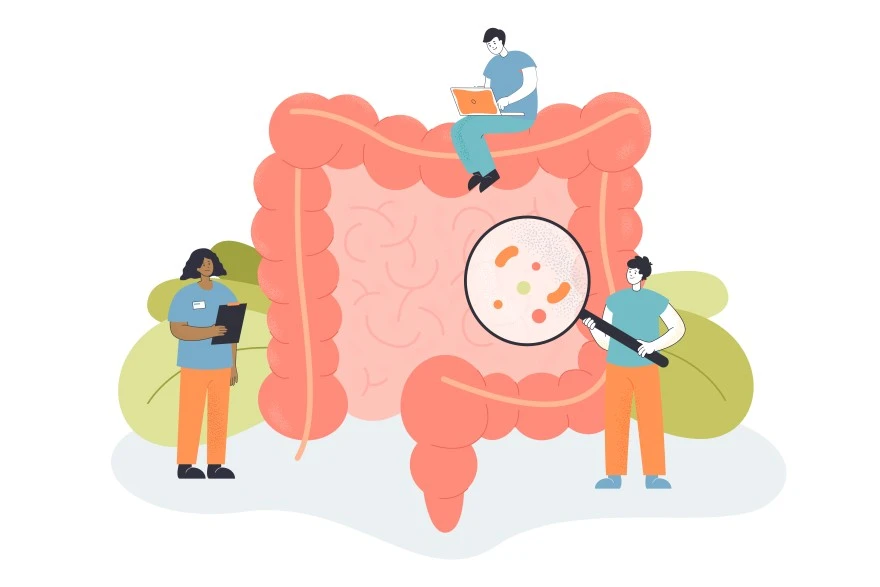KFT Test (Kidney Function Test)
Also known as: Kidney Function Test (KFT) Renal
Kidney Function Test (KFT) Renal Details in Brief
| Also Known As | RFT (Renal/Kidney) Function Tests) Profile - Maxi, Kidney Function Test (KFT) Renal |
|---|---|
| Purpose | Expanded panel for kidney function assessment; aids in early detection and monitoring of kidney dysfunction. |
| Preparation | Clinical History Required |
| Fasting | Not required |
| Reporting Time | After 4 hours |
| Cost | 1,250 |
What Is a Kidney Function Test (KFT)?
A kidney function test, commonly known as KFT, is a comprehensive panel of blood and urine tests used to evaluate how well your kidneys are working. It helps detect and monitor kidney damage or disease, assess severity, monitor chronic kidney disease progression, and evaluate treatment effectiveness.
What Does the Kidney Function Test (KFT) Measure?
The main purpose of a KFT is to see if your kidneys are effectively filtering waste products from the blood and maintaining your body's balance of electrolytes and fluids:
- Serum Creatinine: A waste product from normal muscle wear and tear that healthy kidneys filter out.
- Blood Urea Nitrogen (BUN): A waste product formed when your body breaks down protein.
- Estimated Glomerular Filtration Rate (eGFR): Estimates how much blood your kidneys filter per minute.
- Uric Acid: A waste product from the breakdown of purines that the kidneys help excrete.
- Electrolytes: Includes sodium, potassium, and chloride, which help regulate fluid balance, nerve function, and muscle contraction.
- Proteins: Including albumin and globulin levels that indicate kidney and liver health.
- Urine Analysis: Checks for protein, blood cells, and other substances in urine.
Kidney Function Test (KFT): Who Needs It and Why It's Done
What Symptoms May Call for a Kidney Function Test (KFT)?
Your doctor may recommend a KFT if you experience symptoms that suggest potential kidney problems:
• Swelling in hands, ankles, feet, or around the eyes
• Changes in urination patterns, especially at night
• Foamy, bubbly, or bloody urine
• High blood pressure
• Persistent fatigue and weakness
• Loss of appetite, nausea, or vomiting
• Dry, itchy skin
• Muscle cramps or twitching
Who Should Get a Kidney Function Test (KFT)?
Several groups of people benefit from regular kidney function monitoring:
• People with diabetes or high blood pressure.
• Individuals with a family history of kidney disease.
• Older adults whose kidney function naturally declines with age.
• Patients on certain medications that may affect kidney function over time.
• People with heart disease, obesity, or autoimmune conditions like lupus.
• Anyone seeking a comprehensive health screening, as kidney disease often shows no early symptoms.
Why Is a Kidney Function Test (KFT) Done?
A KFT is done to diagnose kidney disease at an early stage, monitor the progression of existing conditions, and make timely treatment decisions to prevent irreversible kidney failure.
Importance of a Kidney Function Test (KFT)
The kidney function test is clinically vital because chronic kidney disease often develops silently without noticeable symptoms until significant, irreversible damage occurs. Early detection through regular KFT screening allows doctors to implement protective treatments, recommend lifestyle modifications, and monitor disease progression.
By measuring key parameters, like eGFR and protein levels, the test helps doctors stage kidney disease accurately, guide treatment decisions, and prevent complications. This proactive approach can significantly slow disease progression and improve your long-term health outcomes.
Kidney Function Test (KFT) Booking & Reports – Metropolis Healthcare India
How to Book a Kidney Function Test (KFT)?
- Simple Online Booking
Booking can be done through the Metropolis Healthcare App or website. Select 'Kidney Function Test (KFT)', choose a convenient time slot, and provide your address for a blood test at home. You can also visit the nearest Metropolis Lab if you prefer to give the sample directly at the lab. - Safe Home Sample Collection
Our trained phlebotomists ensure the timely collection of your sample while strictly following all safety and hygiene protocols. - Sample Tracking Updates
Stay informed at every step. From collection to testing, you can track your sample directly through the Metropolis Healthcare website. - Accurate Laboratory Testing
Your sample is processed at our NABL & CAP accredited laboratories, where expert technicians ensure accurate results. - Quick & Easy Reports
Receive your test reports promptly via email, WhatsApp, or by downloading them directly from the Metropolis Healthcare website or app.
Is Home Sample Collection for Kidney Function Test (KFT) Available Near You?
Yes, home sample collection for the kidney function test is widely available across India through Metropolis Healthcare. Our trained phlebotomists visit your home at your preferred time, following strict safety protocols to collect blood and urine samples. This service eliminates travel time and waiting queues while ensuring the same accuracy and reliability.
How Long Does It Take to Get a Kidney Function Test (KFT) Report?
Reports are usually available within 4 hours once the sample reaches the lab.
Note: Report time may vary depending on your location.
Where Can I See or Get Kidney Function Test (KFT) Results?
Test results from Metropolis Healthcare can be accessed through multiple convenient channels. You can log in to the Metropolis website using your credentials or use the Metropolis Healthcare App to view and download your reports. Additionally, test reports are sent via email or WhatsApp, and you also have the option to collect a physical copy directly from the lab.
Interpreting Kidney Function Test (KFT) Results
What Your Kidney Function Test (KFT) Results May Indicate
The following table helps you understand what different parameter values might suggest about your kidney health:
|
Parameter |
Normal Range |
High Values May Indicate |
Low Values May Indicate |
|
BUN (Blood Urea Nitrogen) |
8-23 mg/dL |
Kidney dysfunction, dehydration, high-protein diet |
Low muscle mass, liver disease, malnutrition |
|
Creatinine |
0.67-1.17 mg/dL |
Acute/chronic kidney disease, muscle damage |
Low muscle mass, muscular atrophy, ageing |
|
eGFR |
≥90 ml/min/1.73 sq m |
Normal kidney function |
Kidney disease (stages based on values) |
|
Uric Acid |
3.4-7.0 mg/dL |
Gout, kidney stones, and kidney disease |
Liver disease, certain medications |
|
Sodium |
136-145 mmol/L |
Dehydration, excessive salt intake |
Prolonged vomiting, diarrhoea, fluid retention |
|
Potassium |
3.5-5.1 mmol/L |
Dehydration, kidney problems |
Diarrhoea, vomiting, excessive renal excretion |
|
Chloride |
98-107 mmol/L |
Dehydration, kidney failure |
Dietary deficiency, excessive loss through vomiting |
|
Total Protein |
6.4-8.3 gm/dL |
Dehydration, chronic inflammation |
Malnutrition, liver disease, and kidney disease |
Conditions that May Affect Kidney Function Test (KFT) Accuracy
Several factors can influence your kidney function test results and should be discussed with your doctor:
• Dehydration can cause temporary increases in BUN and creatinine levels.
• A high-protein diet or recent large meat consumption may elevate creatinine and BUN.
• Intense exercise before the test can temporarily raise creatinine levels.
• Certain medications, including painkillers, antibiotics, and blood pressure medicines.
• Muscle mass variations can affect creatinine levels naturally.
• Recent illness or stress may temporarily impact kidney function markers.
How Is a Kidney Function Test (KFT) Done?
The kidney function test involves collecting both blood and urine samples for a comprehensive assessment:
• A trained phlebotomist will tie a band around your upper arm to make veins visible.
• The puncture site is cleaned with an antiseptic to prevent infection.
• A small needle is inserted into a vein to collect about 3 ml of blood.
• You'll also need to provide a 20 ml spot urine sample in a sterile container.
• The blood sample is processed to obtain serum for various chemical analyses.
• Your urine sample undergoes both chemical and microscopic examination.
• All samples are tested using advanced automated equipment in accredited laboratories.
How Should You Prepare for a Kidney Function Test (KFT)?
Proper preparation helps ensure accurate results for your kidney function assessment:
• Stay well-hydrated: Drink adequate water before the test unless instructed otherwise.
• Dietary considerations: Avoid high-protein meals immediately before the test.
• Inform about medications: Tell your doctor about all medicines and supplements you're taking.
• Collect urine properly: Use the sterile container provided and follow collection instructions carefully.
• Avoid intense exercise: Refrain from heavy physical activity 24 hours before the test.
Diseases that a Kidney Function Test (KFT) Can Help Detect
A comprehensive KFT can help identify various kidney-related and systemic conditions:
• Chronic Kidney Disease (CKD): Progressive loss of kidney function over time
• Acute Kidney Injury: Sudden kidney function decline
• Diabetic Nephropathy: Kidney damage due to diabetes
• Hypertensive Nephropathy: Kidney damage from high blood pressure
• Glomerulonephritis: Inflammation of the kidney filtering units
• Kidney stones: Mineral deposits that can affect kidney function
• Polycystic Kidney Disease: Genetic condition causing kidney cysts
• Electrolyte imbalances: Disrupted mineral levels affecting body functions
Kidney Function Test (KFT) Packages that You Can Book With Metropolis Healthcare
Metropolis Healthcare offers comprehensive kidney assessment options to meet your specific healthcare needs:
|
Test/Package Name |
Purpose/Highlights |
|
Comprehensive kidney function assessment with 12 parameters. |
|
|
Extended metabolic evaluation, including kidney markers. |
|
|
Specialised monitoring for patients on dialysis treatment. |
Kidney Function Test (KFT) Prices in Different Cities
The cost of a kidney function test (KFT) may vary depending on your location. Here's a table showing the approximate prices in different cities:
|
City |
Price |
|
₹ 700 to ₹ 1300 |
|
|
₹ 700 to ₹ 1300 |
|
|
₹ 700 to ₹ 1300 |
|
|
₹ 700 to ₹ 1300 |
|
|
₹ 700 to ₹ 1300 |
|
|
₹ 700 to ₹ 1300 |
Kidney Function Test (KFT) Renal Price
Metropolis Healthcare is a leading diagnostics centre and pathology lab in India equipped with the latest state-of-the-art technologies that provides the Kidney Function Test (KFT) Renal with a clear pricing structure.
The Kidney Function Test (KFT) Renal Price in Mumbai is ₹ 1,250 .
We are committed to deliver accurate and quality results from the best labs in India with complete transparency regarding test cost and turnaround time. No matter where you are, we strive to offer patients high-quality service that is affordable and accessible.
Frequently Asked Questions
The test can be done any time, but morning is preferred if fasting is required. Follow your doctor's specific instructions regarding timing.
Overnight fasting is not mandatory for a kidney function test (KFT). However, follow your doctor’s specific instructions based on your individual health condition.
Yes, dehydration can temporarily increase BUN and creatinine levels, making kidney function appear worse than it actually is. Stay well-hydrated before testing.
Avoid high-protein meals before the KFT, and inform your doctor about all medications and supplements you're taking. Follow your doctor’s specific instructions regarding fasting or preparation.
A trained phlebotomist cleans your arm, inserts a small needle into a vein, and collects blood samples. The process takes just a few minutes.
Risks are minimal, similar to any blood test. You might experience slight pain during needle insertion or minor bruising at the site afterwards.
Normal ranges vary by parameter: BUN 8-23 mg/dL, Creatinine 0.67-1.17 mg/dL, eGFR ≥90 ml/min/1.73 sq m. Consult your doctor for a detailed interpretation.
KFT is also called Renal Function Test (RFT), Renal Panel, or Kidney Profile. All these terms refer to the same comprehensive kidney assessment.
KFT primarily assesses kidney function, not infection. Kidney infections are diagnosed through urine analysis and culture tests, not standard KFT parameters.
Yes, a comprehensive KFT often includes urine analysis to check for protein and other substances that indicate kidney health and function.
Yes, they are identical. "Renal" is the medical term for kidney-related, so KFT and renal function test refer to the same diagnostic panel.
The test itself isn't painful. You'll only feel a brief, sharp prick when the needle is inserted for blood collection. Discomfort is minimal.
Regular KFT testing is the most reliable way to assess kidney health, along with maintaining healthy lifestyle habits and managing risk factors effectively. Additionally, managing blood pressure and blood sugar and maintaining a healthy weight can help.
Ratings & Reviews (0)
Why Metropolis?
Metropolis has a team of 200 senior pathologists and over 2000 technicians delivering diagnostic solutions in the areas of routine, semi specialty and super specialty domains like Oncology, Neurology, Gynaecology, Nephrology and many more.
We offer a comprehensive range of 4000+ clinical laboratory tests and profiles, which are used for prediction, early detection, diagnostic screening, confirmation and/or monitoring of the disease.





















 WhatsApp
WhatsApp